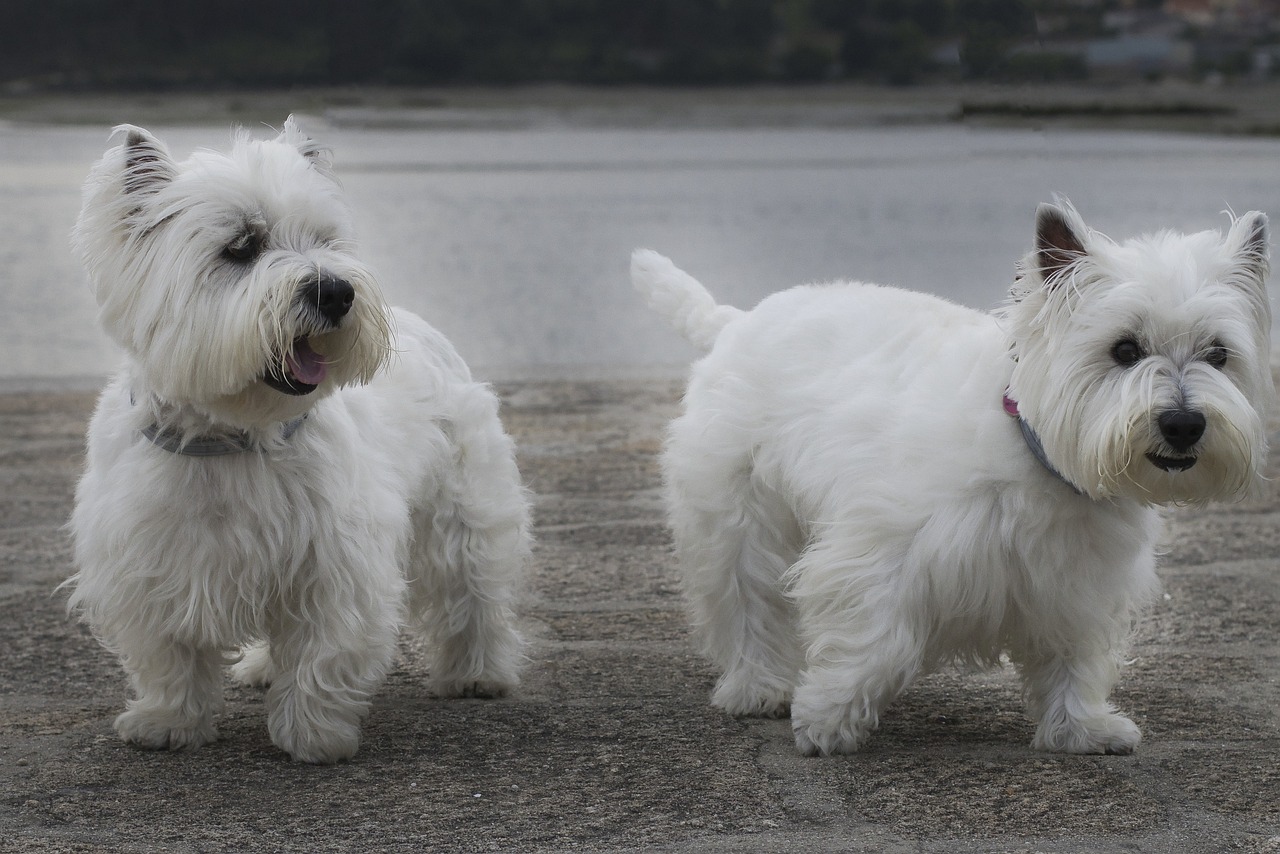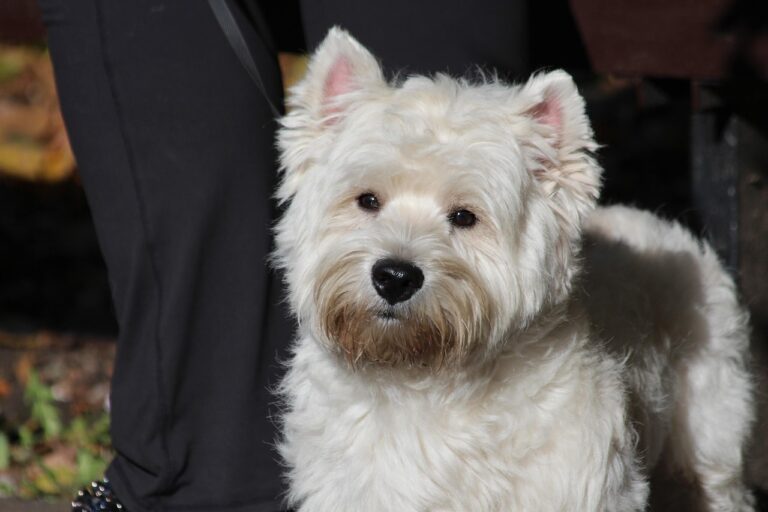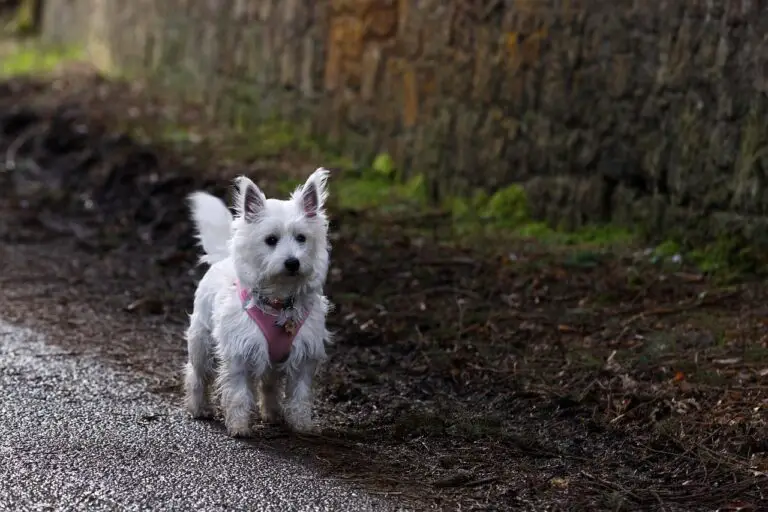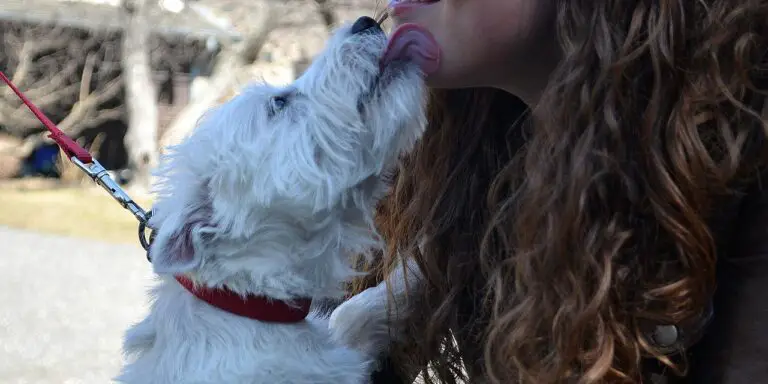Why Are My Westie’s Paws Brown? Causes & Solutions

Introduction
West Highland White Terriers, or Westies, are known for their bright, white coats. However, many Westie owners notice that their dog’s paws turn brown or reddish over time. This discoloration can be caused by saliva staining, allergies, yeast infections, or environmental factors. In this guide, we’ll explain why your Westie’s paws are brown, what causes the discoloration, and how to fix it.
1. Common Reasons for Brown Paws in Westies
If your Westie’s paws are turning brown, the cause is usually one of these four issues:
1.1 Saliva Staining from Licking & Chewing
Excessive licking or chewing of the paws is the #1 reason for brown discoloration. Westies with allergies, anxiety, or itchy skin often lick their paws, leaving behind a reddish-brown stain due to natural compounds in their saliva.
Signs of Saliva Staining:
- Brown or rust-colored stains around the paws
- Damp fur from frequent licking
- Paw irritation or redness
Why Does Saliva Stain the Fur?
Saliva contains porphyrins, a natural compound that turns brown or red when exposed to air. The more your Westie licks, the worse the staining becomes.
1.2 Allergies (Food or Environmental)
Westies are prone to allergies, which can cause itchy, inflamed paws. Common allergens include:
- Food allergies (chicken, beef, grains, dairy)
- Grass or pollen allergies
- Household chemicals (cleaners, detergents)
Signs of Allergies in Westies:
- Constant licking or chewing of paws
- Red, irritated skin between the toes
- Itchy ears, sneezing, or watery eyes
1.3 Yeast or Fungal Infections
A yeast infection can cause brown paw staining, usually accompanied by a musty odor and excessive licking. Yeast thrives in moist, warm areas—especially between a Westie’s toes.
Signs of a Yeast Infection:
- Brown discoloration with a greasy feel
- A strong, musty or “corn chip” odor
- Itching and redness between the paw pads
1.4 Environmental Factors & Dirty Paws
Westies who frequently walk on dirt, wet grass, or pavement may develop brown paws from staining. Chemicals like road salt or pesticides can also cause discoloration.
Signs of Environmental Staining:
- Brown paws after outdoor play
- No itching or licking
- Stains wash off easily
2. How to Fix & Prevent Brown Paws in Westies
Now that we know the causes, let’s go over how to remove brown stains and prevent future discoloration.
2.1 Reduce Licking & Address Allergies
- Identify allergens by switching to a hypoallergenic diet or using allergy testing.
- Wipe paws after walks to remove allergens.
- Give antihistamines (like Benadryl) (consult your vet first).
- Use a dog-friendly anti-itch spray to stop licking.
2.2 Treat Yeast or Fungal Infections
- Wash paws with antifungal dog shampoo (like chlorhexidine shampoo).
- Use apple cider vinegar soaks (mix 1 part vinegar with 2 parts water) to kill yeast.
- Keep paws dry and clean after baths or walks.
2.3 Clean & Whiten the Fur
- Use a dog-safe whitening shampoo (avoid human products).
- Wipe paws daily with a mild hydrogen peroxide solution (diluted).
- Apply coconut oil or shea butter to protect the fur.
2.4 Improve Diet & Supplements
- Feed omega-3 rich foods (like salmon oil) to reduce inflammation.
- Add probiotics to support gut and skin health.
- Avoid grains and artificial additives if your Westie has food allergies.
3. When to See a Vet
If your Westie’s paws are brown and:
✔ They lick excessively despite home treatments
✔ The skin looks red, swollen, or cracked
✔ There is a strong odor (sign of infection)
✔ Your Westie is limping or in pain
…it’s time to visit the vet for allergy medication, skin tests, or antifungal treatments.
FAQs About Westies & Brown Paws
1. Is it normal for a Westie’s paws to turn brown?
No, brown staining is usually caused by saliva, allergies, yeast, or dirt. Identifying the cause can help prevent it.
2. How do I get rid of brown stains on my Westie’s paws?
Use whitening shampoo, vinegar soaks, and anti-itch treatments to stop licking and remove stains.
3. What foods cause brown paw staining in Westies?
Common allergens include chicken, beef, dairy, wheat, and soy. A grain-free diet may help.
4. Can stress or boredom cause my Westie to lick its paws?
Yes! Anxiety and boredom can lead to excessive licking, causing saliva stains. Provide more playtime and mental stimulation.
5. How often should I clean my Westie’s paws?
Wipe them daily with a damp cloth and bathe monthly with whitening shampoo to prevent staining.
Conclusion
If your Westie’s paws are turning brown, the most likely cause is excessive licking, allergies, or a yeast infection. By addressing the root cause, using proper paw care, diet adjustments, and whitening treatments, you can keep your Westie’s paws clean, healthy, and bright white!






